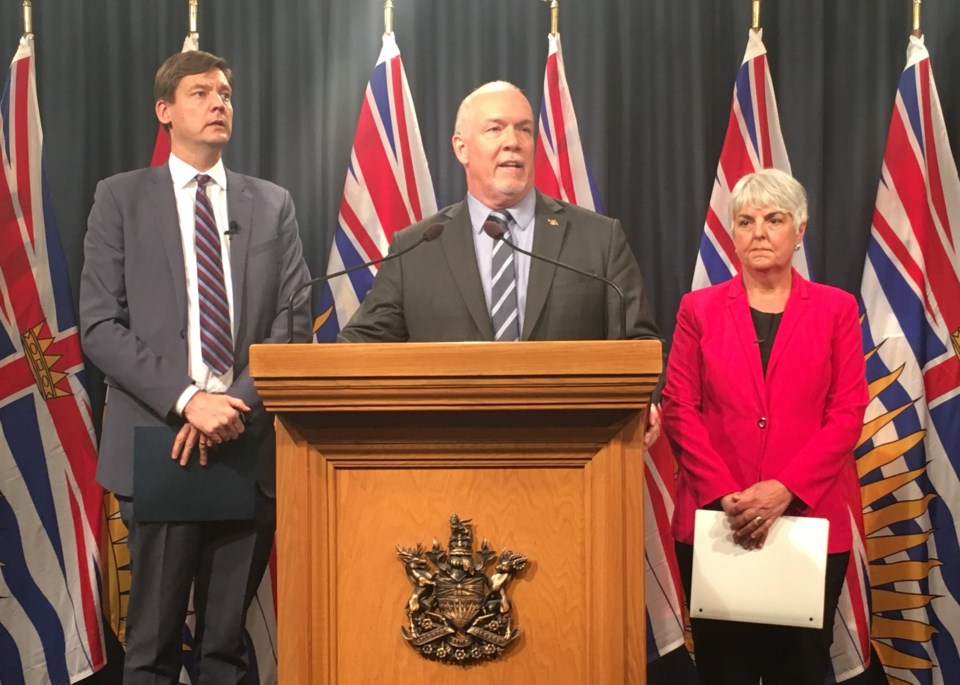When is a contract made by government reviewable by the courts? Mostly they are not. Governments contract with people all the time – to build a road, to run a service, etc. But sometimes contracts are of such magnitude, and the rights they impact are so great, that a court might intervene.
Is the Community Benefits Agreement (CBA) one such contract?
The CBA is the collective bargaining agreement between the government’s new Crown Corporation, BC Infrastructure Benefits Inc (BCIB), and building trades unions affiliated with the Allied Infrastructure and Related Construction Council of BC (AIRCC); or, as some describe them, “NDP approved unions.” Those particular unions employ less than 15% of the construction workers in BC.
In other words, a full 85% of BC’s construction workers are not part of the deal.
You’ve heard the sweet-sounding ads on the radio: Community Benefits Agreements will ensure that local workers get jobs, people get apprenticeships, the world will be a better place, etc., as though none of that might have been accomplished through other means.
But of course, there is far more to the matter.
The CBA requires that all workers working on designated infrastructure projects, including the Patullo Bridge replacement and the Trans-Canada Highway widening, be members of AIRCC unions. The BCIB will be their employer, and all contractors and employees will be bound by the CBA.
Contractors will be obliged to hire workers exclusively from the AIRCC unions, regardless as to whether those contractors have collective bargaining relationships with other unions.
It’s a sweet deal for the unions: the related Project Labour Agreement requires 32 cents per person hour to go the unions themselves, including 25 cents per hour for “union administration.” Apparently the dues they charge their members are not enough.
By a remarkable coincidence, it turns out that the AIRCC unions have been significant political and financial supporters of the NDP.
The resulting arrangement is highly costly to BC taxpayers (an astonishing $4.8 billion over the next three years for all projects, according to one analysis), unfair to other contractors, unfair to other unions, and unfair to workers.
No surprise that the whole matter is in court.
The Independent Contractors and Business Association (ICBA), joined by other contractors’ associations, unions, individual contractors, union members, and employees unaffiliated with unions have petitioned the BC Supreme Court to cancel the contracts.
Contractors argue that it is unfair for them to be required to hire only from AIRCC unions, and not the unions they customarily deal with. Unknown workers dispatched from a union hall will not have the same loyalty to, nor any investment in the success of the contractor.
Members of other unions and independent building trades persons object to being obliged to join one of the AIRCC unions in order to work on one of the projects. They would be forced to give up the continuity of their own benefits, including pension benefits. Many find it particularly galling to pay union dues to an organization they do not support, and to see those dues be paid in part to the provincial NDP.
In other words, these will be taxpayer dollars paid to support a political party.
Round one in the courtroom concluded last week.
The NDP government tried to stop the action before it got off the ground, arguing there was no reasonable prospect of success, and the petition was an abuse of process. They argued the CBA is merely a contractual arrangement between government and private parties and as such, is not reviewable.
However, the court agreed with the petitioners that it’s not so simple. A contract entered into under a government scheme can be subject to judicial review. A distinction is drawn between a public law scheme and a merely private law matter.
How do you decide whether this is a matter of public or private law? If the matter is of sufficient public character or has an additional public element, it may be reviewable.
It does not seem at all surprising, given the magnitude of the issues, that in this case the Court found that there is a “sufficient public element.” Factors considered included: the broad import to the public with the large size of the projects; allegations of improper purpose; the fact that the parties have no real choice but to comply with the agreements; and the impact on the rights and interests of workers and contractors, most of whom have no affiliation or relationship with the AIRCC unions.
Some of the matters in the petition were referred to the Labour Relations Board – but the main issue, whether the Building Trades-only requirement should be quashed, will proceed to a full hearing.
Round one to the petitioners. Much more to come.
Suzanne Anton QC is a former Minister of Justice and Attorney General of British Columbia and a former Vancouver City Councillor



